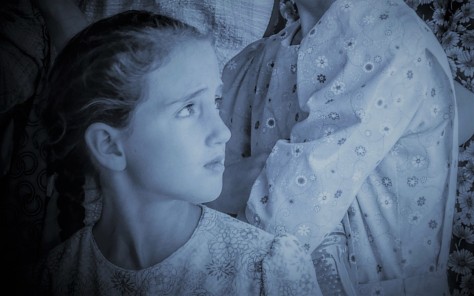
.
Riveting and emotional: The full, first-ever Congressional hearing on “Identifying, Preventing and Treating Childhood Trauma” by the Oversight Committee chaired by Representative Elijah Cummings. Across the hearing, the story of developmental trauma is well conveyed and powerful. The magnitude and the priority of addressing developmental trauma were clear.
.
.
Chairman Elijah Cummings begins with a single sentence by Robin Williams, from the movie Goodwill Hunting, “It’s not your fault”. (starting at 0:15:50 on the video timer).
.
.
.
Chairman Cummings also shares some of his own specific struggle in the educational system, where he was mis-classified into Special Education for his elementary school years and told that he would never be able to read or write, a systemic fate too-frequent for “troubled [trauma-impacted] youth”. Look for it at 00:27:10 in the video or click below to jump there to his comments.
.
.
.
Representative Cummings communicates explicitly and very pointedly that “Childhood Trauma is a “Nationwide Public Health issue associated with an epidemic of negative health consequences” — and — “We need a comprehensive, Federal approach which recognizes the severe impact of Childhood Trauma and prioritizes prevention and treatment”.
.
Rep Cummings emphasizes throughout, the requirement for any effort to be “comprehensive” and coordinated; a “whole child” approach.
.
.
For me, it was all almost too incredible to process what I was hearing. Unspeakable awe and emotion!
.
.
The Hearing (video) can be viewed in sections for time management:
Two different panels provide testimony. The first panel (less than an hour) was comprised of only four members, each trauma-impacted, who speak for less than ten minutes each. The second panel members are professional experts in several different areas of trauma science, data, and application.
.
A few particularly notable interchanges from the experts in the second panel:
.
Dr. Christina D. Bethell was incredibly knowledgeable and extremely well prepared, throughout. Dr. Bethell’s prepared testimony begins at 1:34:00 in the video. Then later, at 2:29:00 in the video testimony, Dr Bethell responds to Representative Jody Hice’s impromptu request to give examples of “illnesses that come from unaddressed trauma” and then again at 2:37:00 in the video, she shares that 28% of those children ages 12-17 (only), have experienced two or more ACEs.
.
Representative Alexandria Ocasio-Cortez (2:30:00 in the video) defines developmental trauma as a “macro-issue of national consequence” following up on Dr. Bethell’s clearly stated magnitude that half of all children are trauma-impacted at some level. Representative Ocasio-Cortez continues: trauma-impact “becomes a lifelong issue for people to live with”. She also connects several situational factors driving traumatization of children.
.
Representative John Sarbanes (at 2:43:00 in the video through 2:47:00) highlights the logic, the power and the priority of Trauma-Informed Schools for intervention and support.
.
“I really aspire to where every school has a ‘Health Suite'”
.
Representative Sarbanes continues: “I can’t think of a better place to bring those services… than into our schools… “because you have a captive audience” [children most impacted by the variety of trauma experiences whether in the home, or the violent neighborhood, or natural disaster]. He asks the panel to “speak to the value of school-based health centers; How we can make them more robust in terms of the mental health component?”
.
Expert panelist Dr. Denese O. Shervington responds: “Schools are one of the most protective places if we can make them that A lot of trauma happens in the home… [domestic violence comes to school] “I strongly support and beg for a scene of schools having health centers that can respond to their [trauma-impacted children’s] needs: social workers and also doctors are important in that too. And again having schools, the climate in the schools, being trauma informed. If we could do that, we would go a long way.”
.
Dr. Shervington continues, consistent with the first Panel: “Every story, the many stories of survival I hear from adults where they look back, it was a teacher.”
.
“A teacher saw something. A teacher did something.”
“So, I just want to say how important health services in the schools are.”
.
All above and so much more, now documented for the official record of the United States government! When the written transcript is available, this summary will be updated.